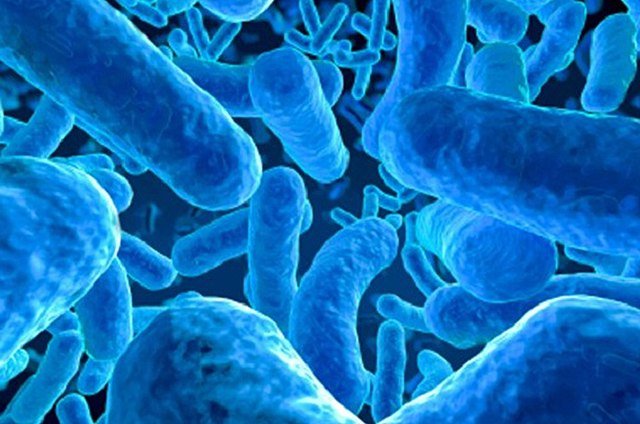
Probiotics are live microorganisms that, when administered in adequate amounts, confer health benefits to the host. However, the commercial production of probiotics involves significant challenges, especially in terms of costs.
Traditional culture media, such as Brain-Heart Infusion (BHI) broth or Tryptic Soy Broth (TSB), are extremely expensive, limiting the economic feasibility of large-scale production. Therefore, the search for cost-effective alternatives has become a priority for the industry.
A team of researchers from the Research Group in Agroindustrial Processes (GIPA) at Universidad de La Sabana (Colombia) designed a culture medium based on agro-industrial by-products using whey, sugarcane molasses, and palm kernel cake as components to produce Lactococcus lactis A12, Priestia megaterium M4, and Priestia sp. M10 isolated from the intestinal microbiota associated with Nile tilapia (Oreochromis niloticus).
Nutritional Requirements of Microorganisms
To thrive, microorganisms need specific nutrients such as carbohydrates (e.g., glucose, dextrose, lactose, and maltose), amino acids (nitrogen sources), and minerals. Phosphorus is also crucial for their growth and metabolism. These nutrients are typically supplied through commercial culture media.
Probiotics intended for fish nutrition are usually produced in commercial media. The process involves separating the probiotic biomass through centrifugation, washing, and resuspending it in saline or phosphate buffer solution before inclusion in animal feed. However, commercial media can be costly, representing between 30% and 40% of production costs.
Cost-Effective Alternatives: Agro-Industrial By-Products
A cost-effective alternative to commercial media is the use of agro-industrial by-products. These by-products can serve a dual function: as a nutrient source for biomass production and as protective wall material in drying processes, enhancing the encapsulation efficiency of probiotic bacteria. Using classified by-products for food use can eliminate the need for biomass recovery, reducing production costs and promoting a circular economy.
Whey, molasses, and palm kernel cake are examples of agro-industrial by-products used in animal nutrition. These by-products have demonstrated significant cost reductions; some studies report a decrease of 62% to 86% in culture media costs while maintaining or even improving biomass production compared to commercial media.
According to scientific studies, whey and sugarcane molasses have been successfully used for the production of LAB and Bacillus species, and palm kernel cake has been used to produce enzymes and biomass from Bacillus subtilis and L. plantarum.
An Innovative Solution
The study published in the journal Scientific Reports demonstrated the possibility of developing a cost-effective culture medium using agro-industrial by-products to produce probiotics for fish nutrition.
Stay Always Informed
Join our communities to instantly receive the most important news, reports, and analysis from the aquaculture industry.
The researchers successfully employed whey, sugarcane molasses, and coconut cake as key components to successfully culture three beneficial bacterial strains isolated from the intestine of Nile tilapia: Lactococcus lactis A12, Priestia megaterium M4, and Priestia sp. M10.
Optimizing the Culture Medium
The scientists found that high concentrations of whey combined with low concentrations of sugarcane molasses and coconut cake, along with agitation, provided the best growth conditions for the bacteria. The optimal culture medium achieved bacterial levels comparable to those obtained with the costly BHI broth.
Economic Impact
The estimated cost of the new culture medium is only USD $3.01 per liter, representing an 86.93% reduction compared to BHI broth, which costs USD $23.04 per liter. This finding has the potential to revolutionize the probiotic industry by significantly reducing production costs.
Implications for Aquaculture
The development of a cost-effective culture medium based on agro-industrial by-products not only reduces costs but also promotes sustainability. By leveraging agricultural residues, this approach contributes to the circular economy and minimizes environmental impact.
Conclusion
“The results showed that this culture medium based on agro-industrial by-products can be used as an efficient and low-cost alternative to produce these potential probiotic bacteria for use in animal feed supplementation,” the researchers conclude.
The study represents a significant advancement in probiotic production. The successful cultivation of Lactococcus lactis A12 and the two Priestia species in monoculture conditions using a cost-effective culture medium opens new possibilities for the sustainable and affordable production of probiotics. This innovation has the potential to improve accessibility to these beneficial microorganisms for animal nutrition, particularly for fish.
The study was funded by the Ministry of Science, Technology, and Innovation (Minciencias) and Universidad de La Sabana, as well as the project “Implementation of biotechnological tools and recirculation systems to achieve the sustainability of tilapia farming as a productive strategy for food safety and security in La Guajira,” funded by the General System of Royalties.
Contact
María Ximena Quintanilla Carvajal
Grupo de Investigación en Procesos Agroindustriales (GIPA), Doctorado en Biociencias, Facultad de Ingeniería, Universidad de La Sabana
Campus del Puente del Común, Km. 7, Autopista Norte de Bogotá, Chia, Cundinamarca, Colombia
Email: maria.quintanilla1@unisabana.edu.co
Reference (open access)
Valle Vargas, M.F., Villamil Diaz, L.M., Ruiz Pardo, R.Y. et al. Design of an agro-industrial by-products-based media for the production of probiotic bacteria for fish nutrition. Sci Rep 14, 17955 (2024). https://doi.org/10.1038/s41598-024-68783-z
Editor at the digital magazine AquaHoy. He holds a degree in Aquaculture Biology from the National University of Santa (UNS) and a Master’s degree in Science and Innovation Management from the Polytechnic University of Valencia, with postgraduate diplomas in Business Innovation and Innovation Management. He possesses extensive experience in the aquaculture and fisheries sector, having led the Fisheries Innovation Unit of the National Program for Innovation in Fisheries and Aquaculture (PNIPA). He has served as a senior consultant in technology watch, an innovation project formulator and advisor, and a lecturer at UNS. He is a member of the Peruvian College of Biologists and was recognized by the World Aquaculture Society (WAS) in 2016 for his contribution to aquaculture.







